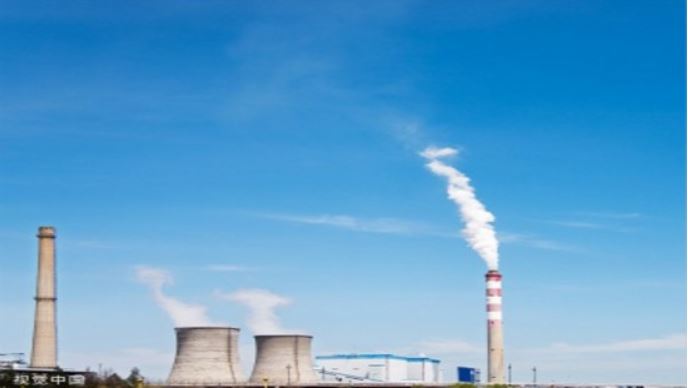China's carbon emissions per unit of gross domestic product (GDP) were down by about 4 percent in 2018, beating the annual target by 0.1 percentage points, an official said on Nov 27.
By 2018, China had slashed carbon intensity, or the amount of carbon emissions per unit of GDP, by 45.8 percent from 2005 levels, meeting the target of a 40 to 45 percent decrease by 2020 ahead of schedule, Zhao Yingmin, vice-minister of ecology and environment, told a press conference.
The figure can be translated to 5.26 billion fewer metric tons of carbon dioxide emitted since 2005.
The share of non-fossil fuels in China's primary energy consumption stood at 14.3 percent at the end of last year, Zhao said.
Power generated from renewable energy sources accounted for 26.7 percent of total power output in 2018, according to Zhao.
"Tasked with missions like improving the people's livelihood and eradicating poverty, we will remain committed to addressing climate change and deliver on our promises 100 percent," said Zhao.
China will staunchly uphold multilateralism in implementing the Paris Agreement, said Zhao, making the remarks before the 25th session of the Conference of the Parties to the United Nations Framework Convention on Climate Change.
China has made significant contributions to global climate action with its dramatic reductions of greenhouse gas emissions and efforts to reduce the cost of renewable energy.
As a developing country, however, it will not help rich countries close the gap in the level of support they had pledged to the Third World, a senior environmental official said.
Li Gao, director-general for climate change at the Ministry of Ecology and Environment, made the comment ahead of the United Nations climate change conference, slated for Dec 2 to 13 in Madrid, Spain.
Last year, China managed to reduce its carbon dioxide emissions per unit of GDP by 45.8 percent from 2005 levels, achieving its goal of reducing carbon intensity by 40 to 45 percent ahead of the 2020 deadline, together with a reduced carbon dioxide equivalent of 5.2 billion metric tons, he said in a recent interview with China Daily.
"This is a huge contribution to the world in tackling climate change," he said.
China has also made a marked contribution to the world by lowering the cost of new energy as it works to decarbonize energy consumption, he added.
With 34 percent of the world's total installed capacity of renewable energy, China is responsible for 40 percent of the global growth in the sector. By the end of last year, the share of nonfossil fuels in the country's primary energy consumption had increased to 14.3 percent.
China is willing to fulfill its obligation in tackling climate change with proactive efforts consistent with its capabilities and development stage," he said. "But we are not going to shoulder responsibilities that should be taken up by the developed powers."
(source:ourjiangsu.com)






